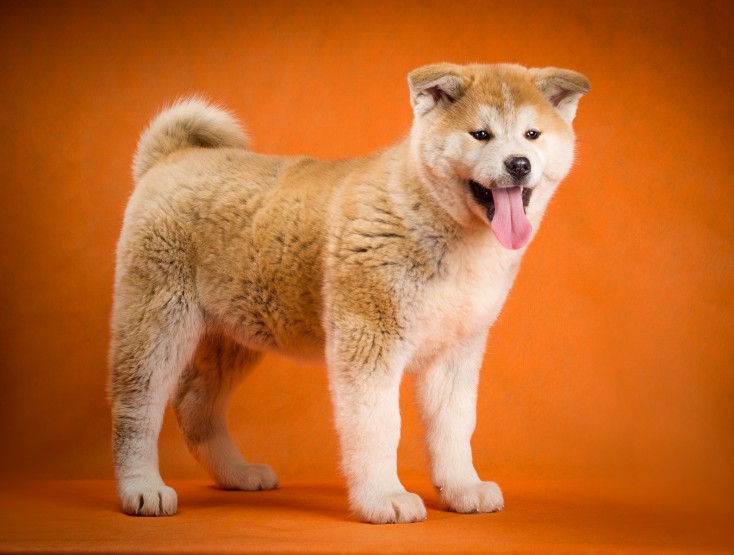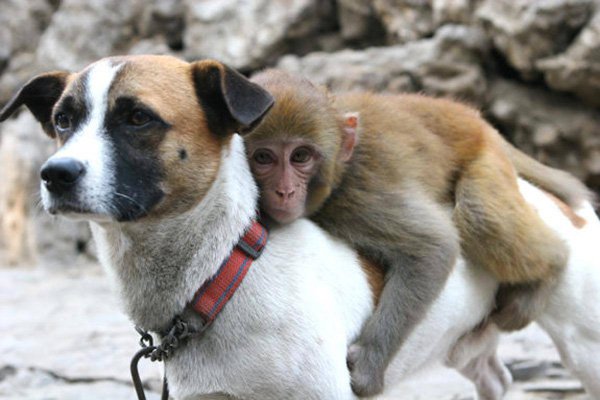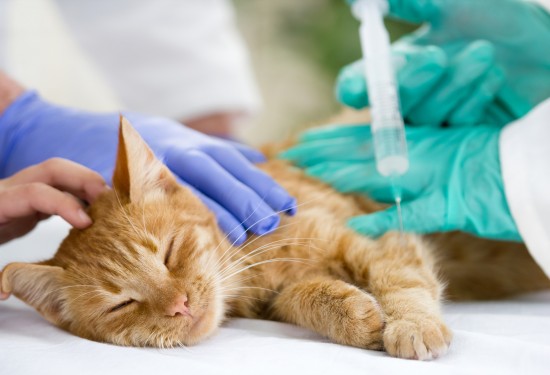
Introduction: Urinary problems are becoming more common in cats. Lower urinary tract (LURT) problems are diet-related, while kidney failure increases with maturity and so is more common in older cats.
Symptoms of urinary problems may include more frequent and longer duration visits to the cat litter tray, weight loss, loss of appetite, and drinking excessively, while haematuria (blood in the urine) is common.
Stress and Cystitis: Emotion-induced cystitis in cats is related to chronic nerve stimulation, with excessive neurotransmitter release and re-use. Anti-depressants work by inhibiting the re-use of the neurotransmitter 5-HT. Additional methods of reducing stress, such as encouraging relaxation and uninterrupted sleep, and moving the cat litter tray to a calmer area, will also help.
Natural Defences: The cat's physiology reduces the chances of LURT infections, making these rare, although more common in females. There are natural, beneficial bacteria in the urethra, which by their very presence prevent colonisation by disease-causing bacteria. Mucus in the bladder helps stop any pathogens from becoming invasive, although mucus and urate crystals can cause painful urethral obstruction in male cats. Antibodies are released into the urine to help in the defence against pathogens, and urea and urine acidity reduce bacterial multiplication. Prostate secretions in males have antibacterial properties.
Most feline urine infections do not appear to be caused by bacteria, although it is possible that they are viral in nature.
Problems in the Urinary Tract: These include genetic abnormalities, injury, infection, poisoning, poor diet, age-related chronic renal failure, tumours, stress-induced cystitis, and mineral deposits - struvite and calcium oxalate
Conventional Treatments: There is now felt to be no need for a low protein diet in chronic kidney disease. Manage uraemia (excessive urea in the blood, a consequence of renal failure) instead by maintaining nitrogen balance, reducing dietary phosphorus, and feeding a medium-protein diet. Anti-oxidants are important for scavenging free radicals (which damage kidney cell membranes), reducing kidney damage for example from excessive lipid in the blood.
1-2% of the cat population suffers from lower urinary tract disease (LUTD), and these are more likely to be fed exclusively dry cat food. Aim to reduce urine specific gravity to <1.020, clear up urinary tract infections, and maintain pH between 6.00 and 6.40. Alkaline urine causes struvite crystal formation, while acidic urine is more prone to calcium oxalate crystals. Potassium chloride crystals may be given to adjust the pH, and broad spectrum antibiotics to reduce UTIs.
Urethral blockages are more common in males as their urethra is anatomically narrower. These may be managed by flushing the urethra clear under a general anaesthetic. Large stones may need to be removed surgically. Incontinence can be helped by drugs that help the bladder muscle. A complete blockage requires surgical intervention within 48 hours or the cat may die from renal failure.
Complementary Treatments: Many cats with LUTD recover within a week with no specific intervention. Encourage owners to feed wet rather than dry foods, as cats naturally get virtually all of their fluid intake from diet such as mice. Ensure fresh water is always available. Avoid scented cat litters.
Nutritional therapies: Avoid standard dry foods (but note that eating habits develop early, and may be difficult to change). Supplement tinned food with fresh cooked meat and cooked mashed vegetables. If calcium oxalate stones have developed, reduce the protein, calcium and sodium in the diet and avoid excessive amounts of vitamin D and ascorbic acid (vitamin C). Asparagus contains asparagines, which may break up oxalate crystals.
Herbalism: Herbs that may reduce urinary stones include stoneroot (Collinsonia calladensis) and horsetail (Equisetum arvense).
Diuretic herbs to increase urinary flow include dandelion (Taraxacum officinale) and couch grass (Elymus repens)
Oedema (swelling, which may be a consequence of excess protein loss in urine and reduced blood protein level) can be reduced by cherry stalk extract (Prunus avium).
Urinary antiseptics include bearberry leaf (Arctostaphylos uva-ursi) and juniper berry (Juniperis communis).
Soothing herbs include peppermint (menthe x piperita), fennel seed (Foeniculum vulgare) and marshmallow root (Althaea officinalis).
General well being may be improved by cinnamon bark (Cinnamomum zeylanicum), comfrey leaf (Symphytum officinale) and celery seed (Apium graveolens).
Copyright (c) 2008 The Naturally Healthy Pet.com
 Progressive Retinal Atrophy (pra) In Dogs
Progressive Retin
Progressive Retinal Atrophy (pra) In Dogs
Progressive Retin
 Symptom Checker - Panting And Shaking In The Dog
Symptom Checker -
Symptom Checker - Panting And Shaking In The Dog
Symptom Checker -
 Hire Professional Pet Grooming Manitoba for Special Treatments
Hire Professional Pet Grooming Manitoba for Special Treatm
Hire Professional Pet Grooming Manitoba for Special Treatments
Hire Professional Pet Grooming Manitoba for Special Treatm
 What Happens When You Leave Your Cat For An Operation?
What Happens When
What Happens When You Leave Your Cat For An Operation?
What Happens When
 Enjoy the outdoors with your dog this autumn with an airline approved dog carrier
Enjoy the outdoors with your dog this autumn with an airli
Enjoy the outdoors with your dog this autumn with an airline approved dog carrier
Enjoy the outdoors with your dog this autumn with an airli
Copyright © 2005-2016 Pet Information All Rights Reserved
Contact us: www162date@outlook.com